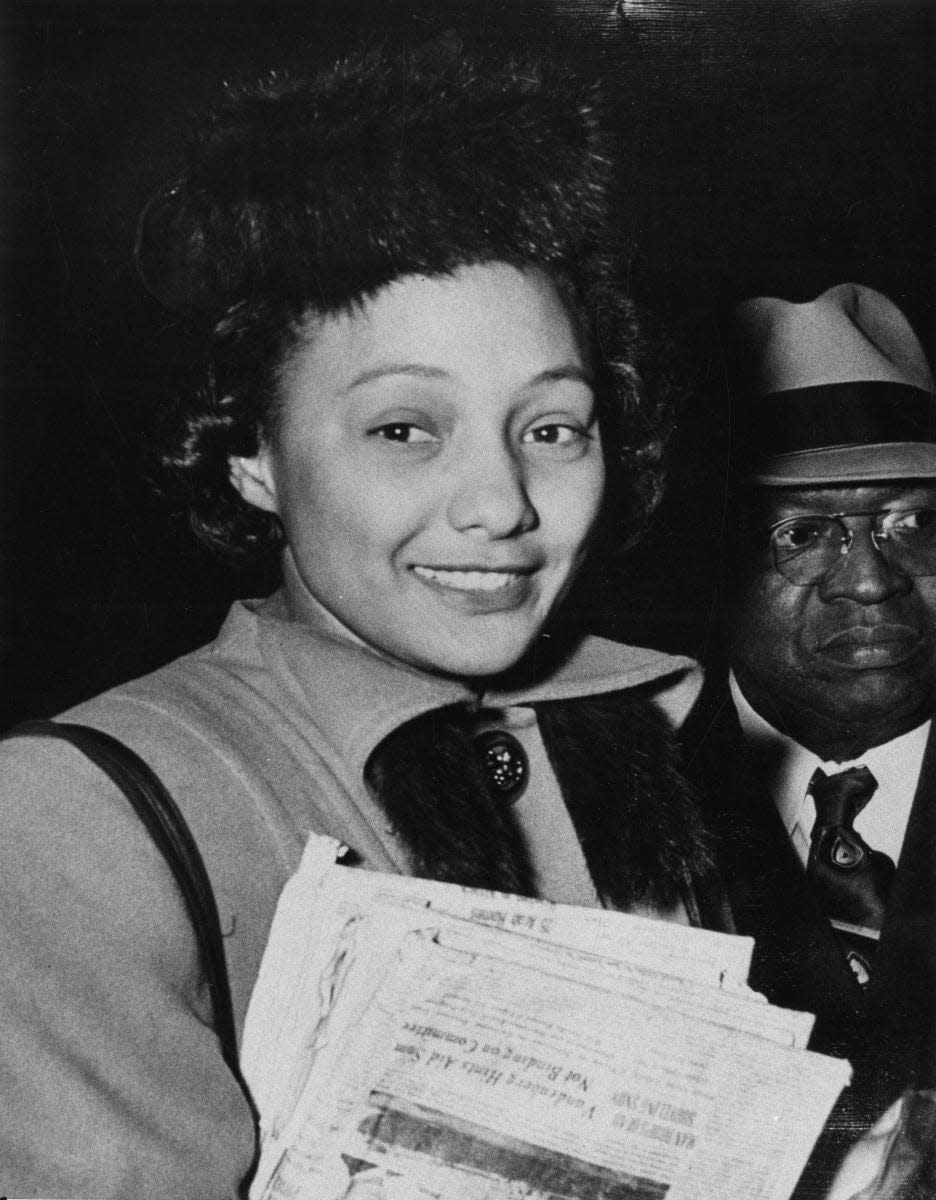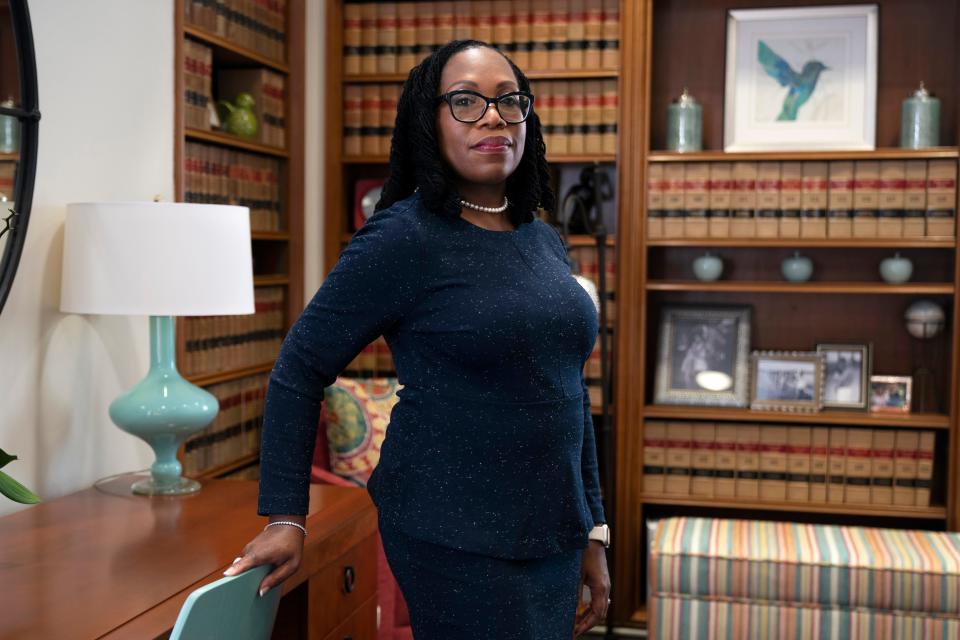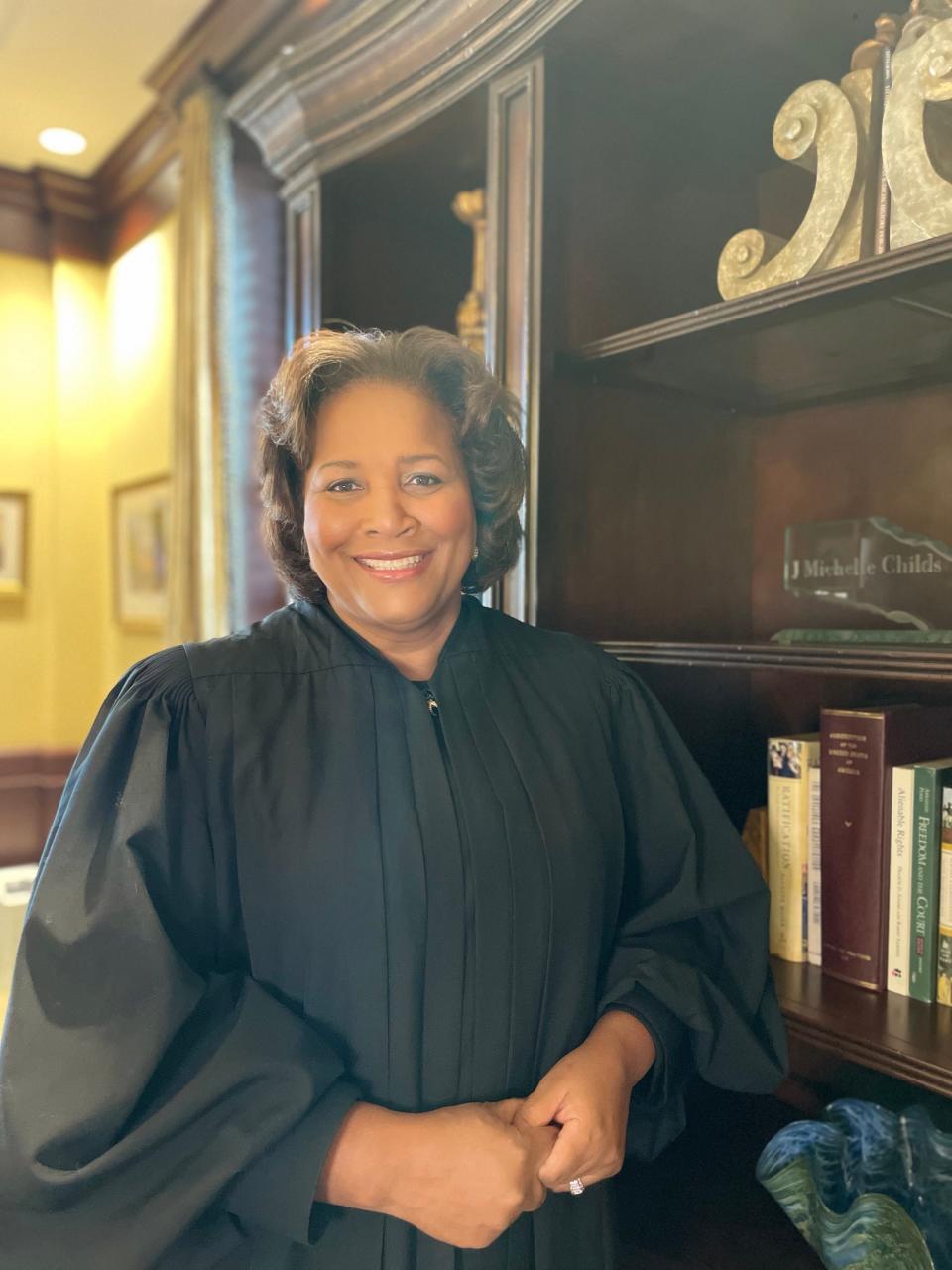Remembering the legacy of Ada Sipuel and her fight for a law-school education | Opinion

- Oops!Something went wrong.Please try again later.
- Oops!Something went wrong.Please try again later.
The phrase: “Standing on the shoulder of giants”, has never been more applicable than today, following President Biden's nomination for the next United States Supreme Court Justice.
For the two nominees who had Florida roots, their giant is Ada Sipuel, whose 1948 lawsuit mandated the desegregation of her university and enabled her to became the first black woman to graduate from a southern law school.
Pre-Brown, the Sipuel lawsuit ultimately compelled the University of Oklahoma to admit Ada Sipuel on June 18, 1949. In an act of defiance, Oklahoma required Sipuel to sit in seat marked “colored” that was roped off from her classmates.
Texas would also employ this practice when a 1950 US Supreme Court decision required the admission of Heman Sweatt to its all-white law school. Unlike Sweatt, Sipuel endured the indignities and graduated in 1951.
Sipuel’s ordeal paved the roads for Michelle Childs’ and Ketanji Brown Jackson’s education.

Ketanji Brown Jackson would attend a desegregated Miami Palmetto Senior High School before her education at Harvard. Michelle Childs would attend and graduate from the University of South Florida (desegregated in 1961) and the University of South Carolina (desegregated in 1963).

USF would not have desegregated without the Sipuel precedent that enabled Virgil Hawkins to obtain the 1958 order that desegregated the University of Florida at the cost of his right to attend.
UF’s first African American students demonstrated to USF that it could also desegregate without what Florida had claimed would be “Great Public Mischief” if it enabled Florida’s Black students to benefit from the education provided by their tax dollars to white students.
Neither the University of South Florida nor the University of South Carolina utilized a “colored chair” section in their classrooms when Childs attended.
Ada Sipuel died in 1995 after successful careers in law and as a member of the University of Oklahoma’s Board of Regents. Her shoulders will guide our next Supreme Court Justice though that court’s doors.

Harley Herman is the President of the Virgil Hawkins Historical Society and a Florida attorney. His 1988 Petition to the Florida Supreme Court posthumously reinstated Virgil Hawkins Florida Bar membership, granting Hawkins’ 1983 plea to the Florida Supreme Court: “When I get to heaven, I want to be a member of the Florida Bar.”
JOIN THE CONVERSATION
Send letters to the editor (up to 200 words) or Your Turn columns (about 500 words) to letters@tallahassee.com. Please include your address for verification purposes only, and if you send a Your Turn, also include a photo and 1-2 line bio of yourself. You can also submit anonymous Zing!s at Tallahassee.com/Zing. Submissions are published on a space-available basis. All submissions may be edited for content, clarity and length, and may also be published by any part of the USA TODAY NETWORK.
This article originally appeared on Tallahassee Democrat: Remembering the legacy of Ada Sipuel and her fight for a law-school education | Opinion

